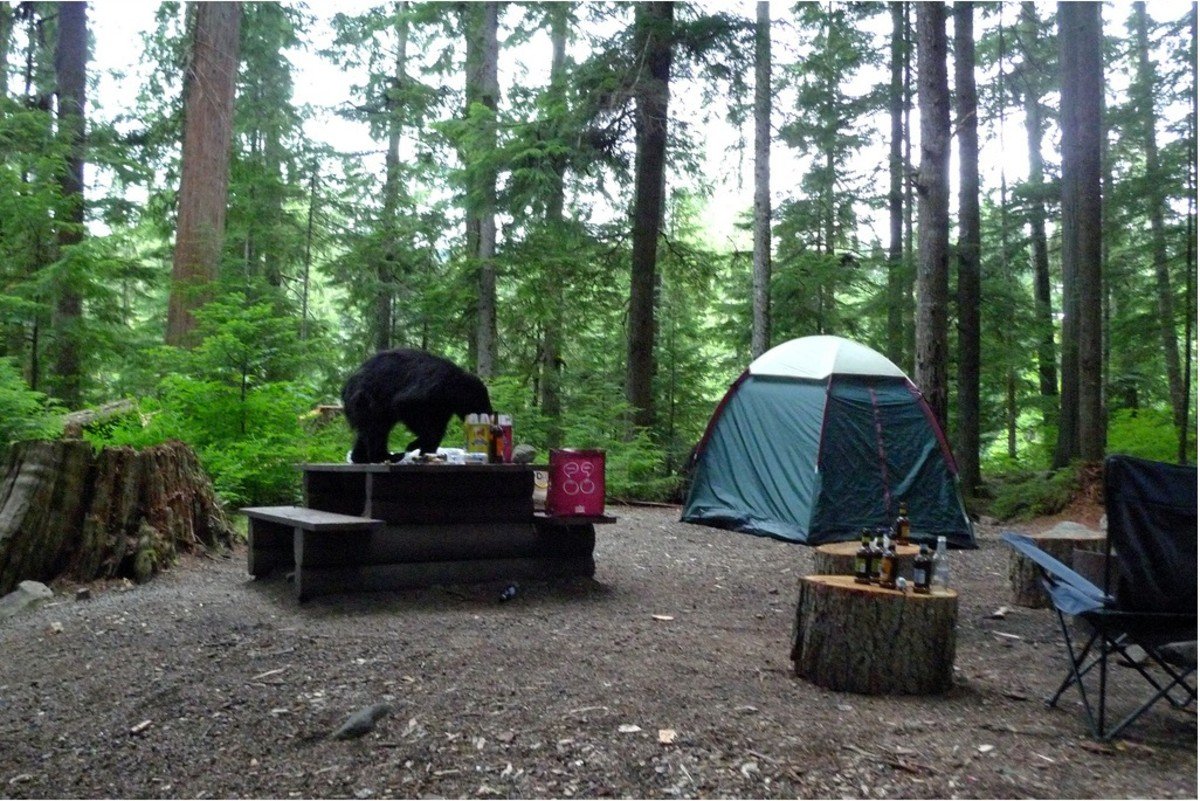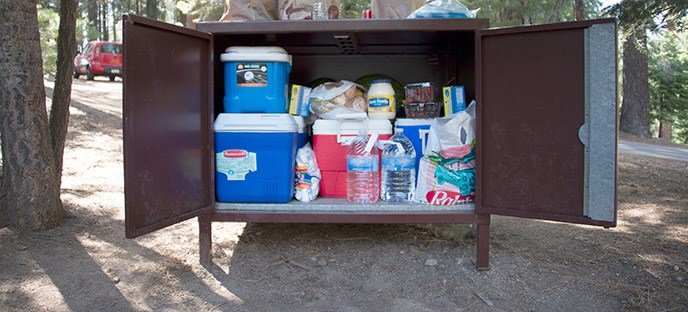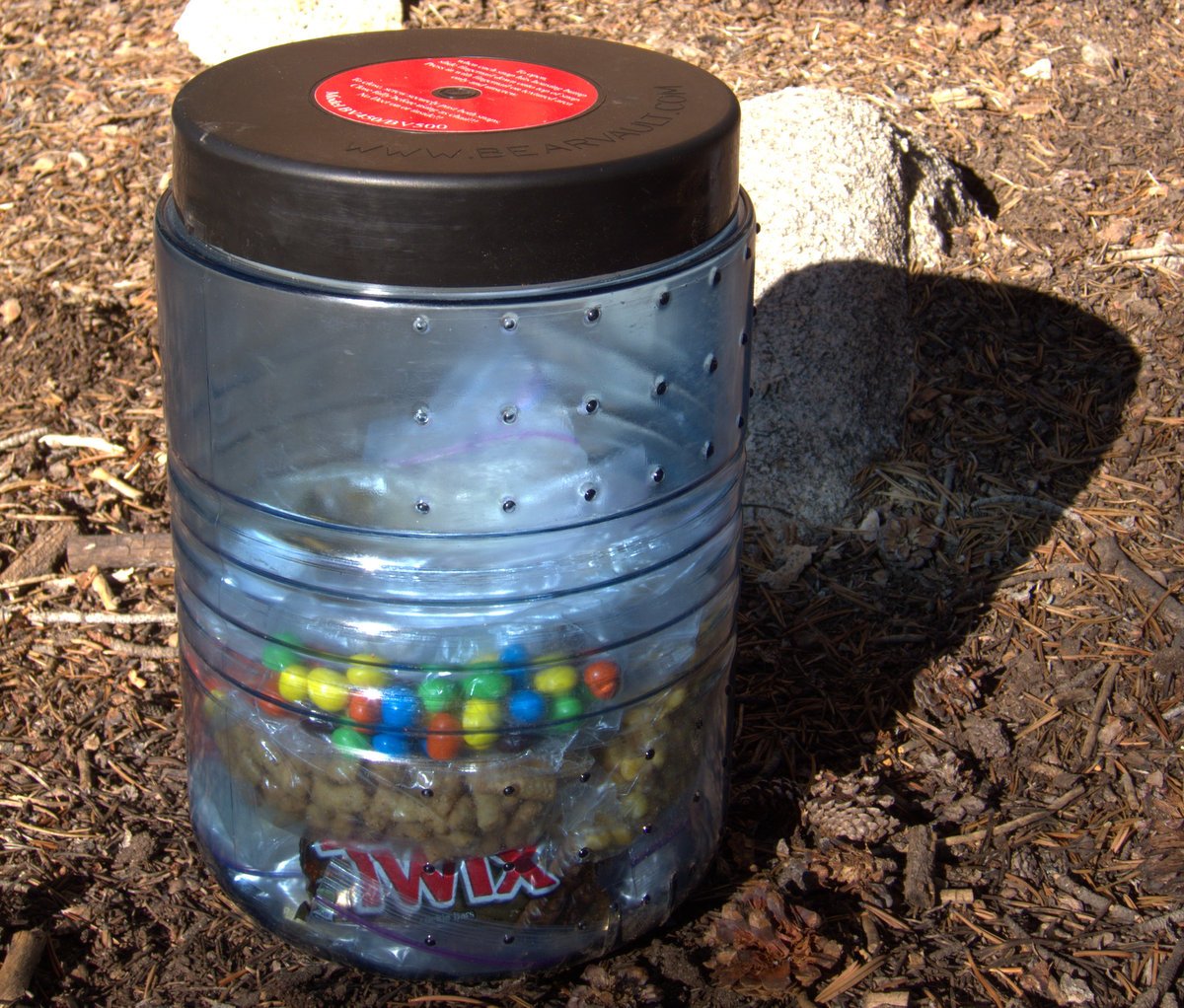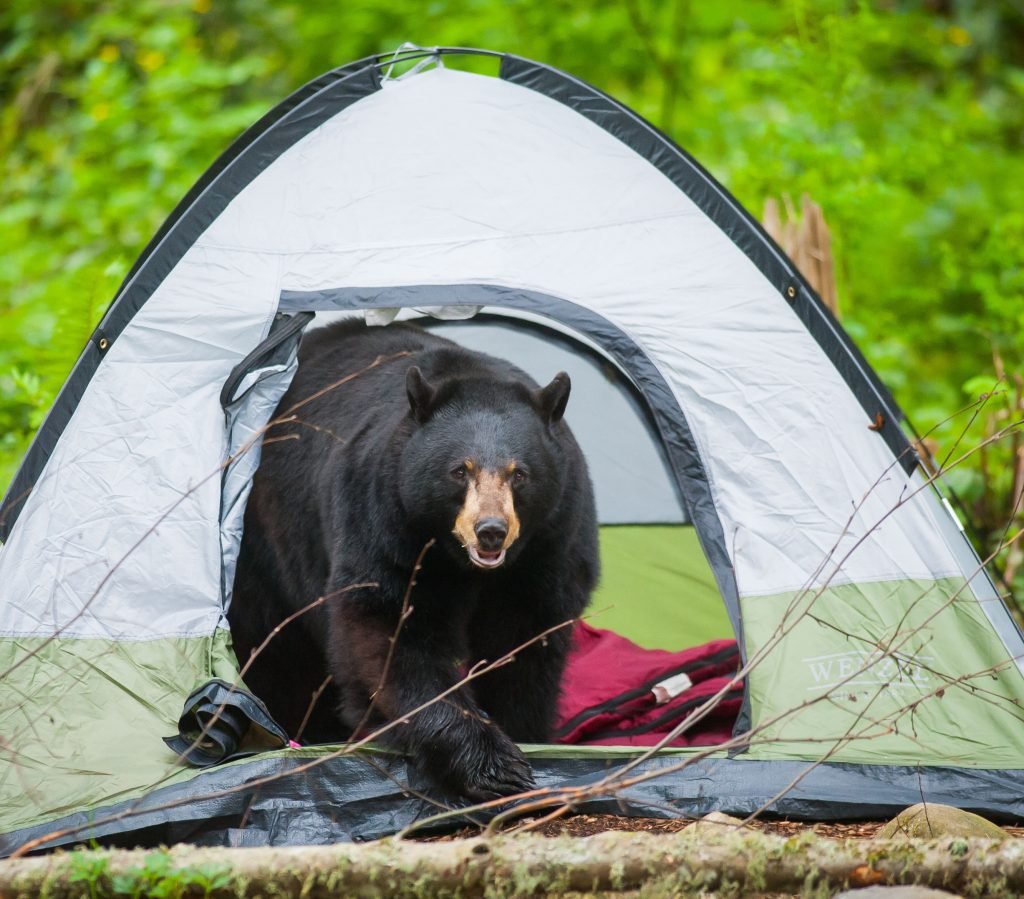Camping in Bear Country
Before you head out for your camping trip research the area and plan ahead. Here on the Sunshine Coast you are in bear country with bears active during March through to December, primarily at dawn and dusk, but it is also not unusual to see bears in the daytime as they are foraging for food. Our bears have an incredible sense of smell and can easily detect food items in backpacks, picnic coolers and vehicles. It is essential that you manage your campsite garbage and attractants, whether a serviced site or back country one, so our bears do not come to visit. This keeps you, and the bear, safe!
Serviced Campground
Bear-proof your food!
Never leave any food items, cookware or scented products unattended and ideally store them in bear proof containers, in a locked vehicle. Bears can readily open car doors if not locked and remember that hard-top/tent trailers are not bear-proof!
Never cook in, or near, your tent or tent-trailer:
Cook 100 meters downwind from your sleeping area.
Clean up promptly after meals and dispose of dishwater in washrooms or a dumping station.
Place garbage in the park’s bear-proof garbage containers. If you have to store garbage at your site, keep it in a locked vehicle.
Do not store any food, food wrappers,beverage containers or scented personal items in your tent or tent-trailer.
Do not sleep in the same clothes worn during cooking.
back country camping
select an appropriate campsite
In random camping areas watch for bear signs (fresh scat, paw prints, overturned rocks etc.) and choose a spot away from berry patches, animal corridors and the sound of rushing water. Camp in open areas.
Bear-proof your food!
Store all food and other attractants in bear-resistant air tight containers, or suspend them between two trees (minimum of four metres off the ground and one metre from tree trunks). Avoid smelly foods: dried or prepackaged food is favourable. Plan meals carefully to reduce leftovers and store all dishes and pots with food. Cook at least 100 meters downwind from your sleeping area.
Keep your sleeping gear and tent free of food odours:
Never cook in or near the tent as lingering food odours are an invitation to bears.
Store the clothing you cooked in with your food in air-tight bags or containers away from your tent.
Do not take food or scented personal items into your tent.
Keep tent pads clean and free of food and garbage.
If possible, cook at least 100 meters downwind from your sleeping area.
Dispose of wastewater
Dispose of wastewater from cooking or doing dishes in a well-drained area downslope from your campsite and not near fresh water.
Pack all garbage back out of wilderness areas
Do not bury garbage as bears can easily locate and dig out. Store garbage in air-tight bags or containers.
pack your bear spray
Bear Spray is not a replacement for preventative safety measures but it is an effective deterrent to have in the event a bear is behaving assertively or is actually charging towards you - as opposed to what is known as bluff charging when the bear is warning you that you are too close and need to back away and give him/her space.
Do not spray your tent, gear or surrounding area with the bear spray: the dispersal of the capsaicinoid oils in the spray can actually act as an attractant. Only use bear spray in the unlikely event of a bear charging towards you. Refer to the section on bear spray for more information.
bear boxes
Your campsite may offer large bear boxes for food and supply storage or you can purchase your own individual bear boxes from a variety of outdoor stores. These are especially helpful if you are going camping in the back country.





